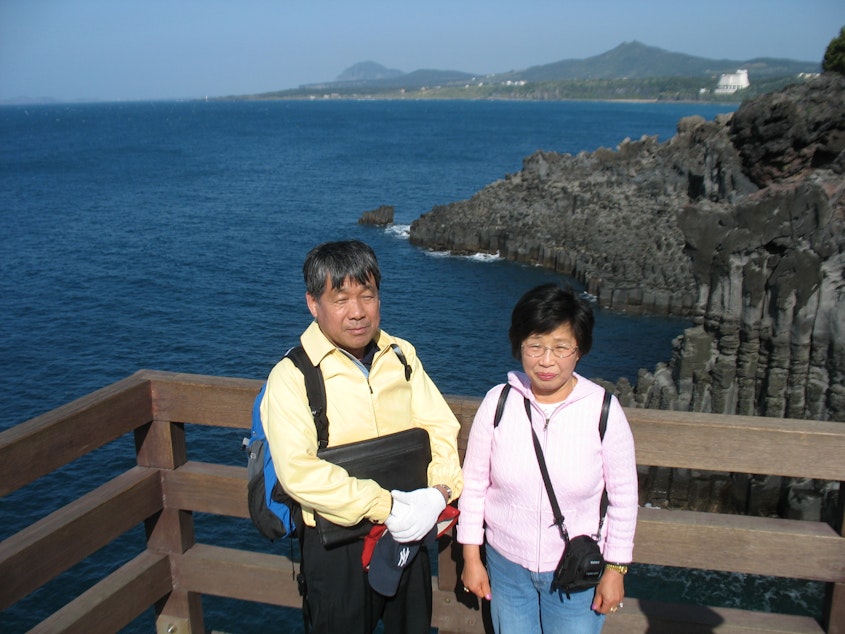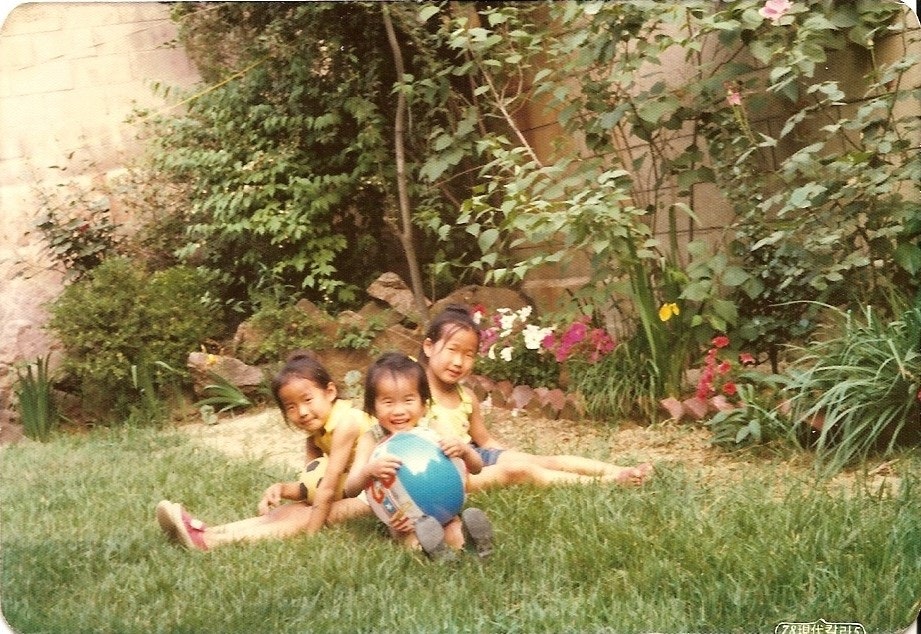How my grandparents braved tragedy after immigrating to America, and what it means for me

Each person who chooses to immigrate to the United States brings their own unique story and set of circumstances.
For Tae-Hyang and Nam-Sook Yu, that was taking a chance and moving from Seoul, South Korea, to the United States. They settled in Seattle, where they faced discrimination for the sake of their daughters’ education, as well as a life-changing tragedy.
RadioActive’s Hayden Andersen tells the story of his grandparents' journey and his family history.
[RadioActive Youth Media is KUOW's radio journalism and audio storytelling program for young people. This story was entirely youth-produced, from the writing to the audio editing.]
M
y grandmother’s name is Nam-Sook Yu, and my grandfather’s name is Tae-Hyang Yu, although I’ve always called them “할머니” (Halemoni), and “할아버지” (Hal-abeoji), short for grandmother and grandfather.
In December of 1978, they made the decision to move from Seoul, South Korea, to the United States, and they’ve lived here in Seattle ever since.
Here, they faced the harsh reality that many non-English speakers face.
Sponsored
"I walked to the office, but I couldn't fill out the application to ask for help at the office," my grandmother said. "They wrote it for me."
They struggled to find work.
"Coming here, there wasn't a good job or a bad job. It was a job," my grandfather said.
In the end, however, they managed to settle down here in the U.S. And in 1983, my uncle was born. His name was Kyong-Hun "Harrison" Yu.
Sponsored
"In 1983, a son was born to me here. In September of 2003, I sent him off to another land. And since then each day is another day," my grandmother said.
In 2003, while driving, my uncle was struck and killed by a drunk driver.
"In all my life, my second happiness — my son — was born in America. But a car came [the] wrong way, collided with my son's car. And he was a student at [The University of Washington], and he died. And I'm still sad," my grandmother said. "I can never forget."
My uncle died before I was born, but I’ve been told that my cousin and I look just like him.
"The good thing about being in America was that our children got their education," my grandfather said. "And now there's a second generation of kids who are doing well. So I have nothing else to say. That's a good thing."
Sponsored

I don’t think that this story is overwhelmingly happy, or as inspiring as I may have hoped it to be. But I still think it’s a very “human” story: a story of sadness, and of injustice, but above all, of perseverance against tragedy and misfortune.
Despite all this, my grandparents stayed strong, and I have countless fond memories of the time we’ve spent together as a family.
This story was produced in a RadioActive Youth Media one-week Intro to Radio Storytelling workshop for high school-age youth. Production assistance by Dayana Capulong and Leila M'baye. Prepared for the web by Kelsey Kupferer.
Find RadioActive on Instagram, Twitter, TikTok, YouTube and Facebook, and on the RadioActive podcast.
Sponsored
Support for KUOW's RadioActive comes from the Bill & Melinda Gates Foundation Discovery Center and BECU.



